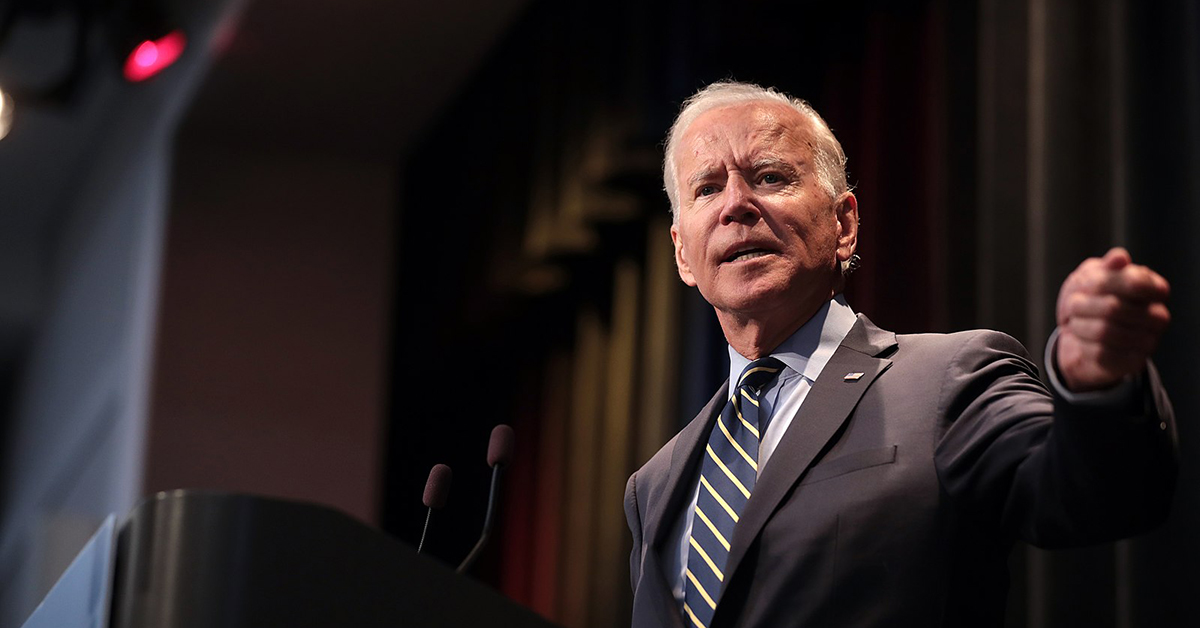Eric Lai
A genuine democracy is more than just elections of state officials by popular vote. It requires true competition with opposition parties, free and fair electoral processes, alongside the rule of law that safeguards civil liberties. The newly-introduced electoral reform in Hong Kong, which was imposed by Beijing in March 2021, works completely in the opposite way. Before the electoral reform, directly-elected seats in the Legislative Council (LC) enjoyed an equal share with the seats under “functional constituencies”, which refers to a corporatist system that is constituted by industrial, commercial and professional sectors. Under the new electoral system, the number of LC seats increased from 70 to 90, but only 20 seats are directly-elected. The sharp decline of seats returned by popular vote is contrasted with the rise of a state-dominated electoral college. 30 seats are returned by functional constituencies and 40 seats are constituted by representatives from the “Election Committee” (EC). EC is a small electoral college of 1,500 representatives. Under the new reform, Beijing enjoys almost full control of the electoral outcome. EC was designed to elect the city’s Chief Executive. However, the new reform empowers EC to play a significant role in LC with the power to vet private bills.
The new electoral reform not only undermines popular mandate in the legislature, but also weakens the checks and balances from the opposition camp and the judiciary. A new “candidate eligibility review committee (CERC) is created to decide who can run for elections, ensuring “patriots ruling Hong Kong”. However, the reviewing process will depend heavily on the new national security regime imposed by Beijing a year ago. CERC will validate nominations of candidates on the basis of opinions of the Committee for Safeguarding National Security (CSNS), where the Beijing-appointed National Security Advisor exercises authority to oversee CSNS’s work. The National Security Department of the Hong Kong Police Force will also engage in the screening process by investigating the political background of candidates. Worse still, unlike previous practice where the courts enjoy full jurisdiction to review election petitions, the electoral reform declares that any nomination decisions made by CERC are not subject to judicial review. The vigorous attempt to kick out “unpatriotic” candidates and the weakening of the court in ensuring electoral integrity certainly prohibit dissent from running for elections.
Although Beijing repeatedly claims that the new electoral system welcomes participation from the “loyal opposition”, only political puppets under the “united front” of the Chinese Communist Party will be given a chance to play the game. Bearing in mind the mass prosecution of 47 pro-democracy activists who were charged with subversion under the national security law for just engaging in primary elections for the pending Legislative Council election in 2020, it is hard to see how genuine believers of democracy can be enthused in electoral politics that would bring them legal and criminal consequences.
This process of power centralisation will lead to a more irresponsive governance in Hong Kong. The absence of genuine opposition and the total control of the legislature by Beijing means that the government can pass any law with no regard to public opinion. In light of the government insistence on passing amendments to the immigration law despite public rejection last month, and the business group’s appeal against a proposed legislation blocking public access to private company information being ignored by the authorities, it is foreseeable that the worst is yet to come. Undoubtedly, the electoral reform is a blow to both Hong Kong’s democratic development and the rule of law, which serve as cornerstones to the city’s global financial and economic status. The people’s fight for democratisation in Hong Kong is now reversed to a resistance against further autocratisation. The struggle has a long way to go.
Jeremy Huai-Che Chiang
Electoral democracy in Hong Kong faces new constraints under new reforms. A new screening committee vetting candidates will include background checks by the police and national security department. In the original election committee, expanded membership will also see new participants drawn from the Chinese People’s Political Consultative Conference (members chosen by Beijing or other pro-Beijing organisations in Hong Kong), while seats held by District Councillors, many of them members of the pro-democracy camp, will be removed. The number of directly elected Legislative Council members will also plunge from 35 to 20, while the Council’s size will be increased from 70 to 90 seats.
What we see is a further institutional marginalisation of the pro-democracy camp from exerting influence over official Hong Kong politics, and an infrastructure giving Beijing more subtle legal mechanisms to assert its will. All in all, Hong Kong’s political system has been further engineered to be a mechanism for smooth top-down governance (and control), and its ability to channel popular will further downgraded to a new low. Under this new legal landscape, pro-Beijing politicians and organisations will have even more outsized say over Hong Kong’s political affairs. Beijing and Hong Kong-based Chinese officials will also have more direct power to perform national security scrutiny over Hong Kong. Sadly speaking, while we all know this is not the beginning of Hong Kong’s democratic backsliding, this quite probably will also not be the end to its decline.
Beijing’s new moves will also accelerate existent trends in Hong Kong’s finance sector. Hong Kong’s role as an international finance hub largely remains untarnished, but it is now increasingly a “Chinese” international finance hub due to Beijing’s ramped up control and the many overseas-listed Chinese firms rushing to list in Hong Kong. According to Reuters and Refinitiv data, as US-China tensions intensify, 13 US-listed Chinese firms (including Alibaba Group Holding Ltd, Baidu Inc and JD.com Inc) have conducted secondary listings worth a combined $36 billion in Hong Kong over the past 16 months. The city has become a safe haven for Chinese firms seeking to attract international capital without the potential political risks abroad, making what used to be a neutral gateway between China and the world a Chinese forward post in its global struggle with the US. Thus it is in Beijing’s sincere interests to have Hong Kong politically under leash to perform that role.
For Taiwan, these new developments will further dampen enthusiasm over Beijing’s “One Country Two System” formula, as these reforms indicate how even limited democracy struggles to function properly under Beijing’s determination to squash discontent. Since 2014, Taiwanese people have been closely following political developments in Hong Kong. As things continue to deteriorate, China-friendly politicians in Taiwan are already having a hard time defending how democratic principles can co-exist under arrangements with Beijing. But Hong Kong and Hongkongers serve not only as a mirror for Taiwan. The increasing number of immigrants/refugees from Hong Kong in Taiwan could also reshape the future of domestic political discourse too, and help loosen the focus over Chinese/Taiwanese divides towards a discussion more framed towards Beijing-challenged democracy, civil liberties, and regional order in general.
Henry Litton
In April 1990 the National Peoples’ Congress passed the Basic Law, the constitution governing Hong Kong, to take effect on 1 July 1997 when China resumed sovereignty over the Region.
At that time, colonial Hong Kong was an autocracy, pure and simple. The Governor made all the laws, with the advice and consent of the Legislative Council (LegCo), whose members were all appointed by him. Senior civil servants sat as official members, and the Governor presided over all meetings.
Against this background, Article 68 of the Basic Law is extraordinary. It provided for LegCo being “constituted by election”. The policy laid down was “gradual and orderly progress” with the “ultimate aim” of the election of all members by universal suffrage.
A parallel provision dealing with Chief Executive selection is Article 45. The policy was the same, with the “ultimate aim” being the selection of the Chief Executive by universal suffrage, “upon nomination by a broadly representative nominating committee in accordance with democratic procedures”.
Articles 68 and 45 represented Beijing’s fundamental policy for governing Hong Kong. In no other region of China (with the minor exception of Macau) was a similar system to be seen. It exemplified the value Beijing placed on Hong Kong’s cultural diversity and distinctive institutions. After reunification, this policy found practical expression as the franchise broadly widened.
By 2014 LegCo comprised 70 seats, 30 coming from geographical constituencies, with “pro-democrats” holding a substantial minority, wielding considerable influence. But they had no agenda for social improvement, no suggestions for narrowing the gap between rich and poor, no initiatives for curbing the excesses of vested interests or anything in the nature of a manifesto for the betterment of the community. None exhibited the least promise of enlightened leadership. The clamour was for more “democracy”. Instead of seeing themselves as custodians for future generations, gradually building up a solid foundation for the practice of universal suffrage, their thirst for personal power became overwhelming.
This led to the Occupy Central movement in 2014 where parts of Hong Kong island and Kowloon were paralysed for 79 days. The aim was to put pressure on the local government, and on Beijing, to accelerate the advent of universal suffrage. But, as Grenville Cross, former Director of Public Prosecutions, put it recently:
“There was, of course, no way that either the Central or local governments would ever succumb to blackmail …Electoral reform was only ever achievable once Beijing’s confidence had been earned but, by their antics in 2014, the “pan-democrats” demonstrated that they were irresponsible, untrustworthy and unsuited to greater democratization.”
The Occupy Central movement lost momentum and eventually petered out. From that point on, the pan-democrats adopted other tactics to confound proper governance and LegCo became increasingly dysfunctional.
When the existential crisis came in mid-2019 LegCo was totally incapable of passing laws to curb the violence in the streets. By early 2020 police resources were vastly over-stretched, the criminal justice overwhelmed, and Hong Kong was on the verge of total collapse. Many LegCo members openly sided with the insurgents. Some made mock of the Basic Law. Some lobbied foreign governments to impose sanctions on Hong Kong.
Eventually, Beijing intervened to save the situation. First with the national security laws coming into effect on 1 July 2020, followed by the electoral reforms introduced in March this year. The electoral reforms are radical. Their aim is to put the orderly evolution towards universal suffrage back on its tracks.
LegCo is expanded from 70 members to 90. The Election Committee is increased from 1,200 members to 1,500 and given new powers and a new role. It elects 40 members to sit in LegCo leaving 30 members to represent functional constituencies and 20 for geographical constituencies. New screening processes are introduced to ensure that candidates truly support the Basic Law and the One Country Two Systems formula for Hong Kong, replacing in effect the role previously played by Returning Officers.
What the reforms ensure is that the legislature is restored to its proper function, acting as an effective organ of government. Whatever model of democracy a community adopts, one thing is certain: “universal suffrage” is not a universal panacea. Take the USA as an example: Had universal suffrage been the paramount principle, Donald Trump would not have won the White House.
Hopefully, a new generation of political leaders will emerge in Hong Kong: leaders who see that democracy involves moderation and respect for the views of others; that the exercise of personal freedom leaves room for others to enjoy theirs; that social progress does not involve bombs in the streets; above all, that freedom and democracy can dwell comfortably under the principle of One Country Two Systems.
This article gives the views of the authors, and not the position of the China Foresight Forum, LSE IDEAS, nor The London School of Economics and Political Science.






11 Comments